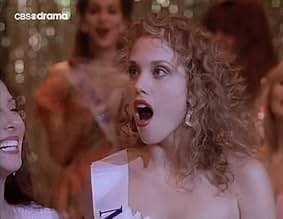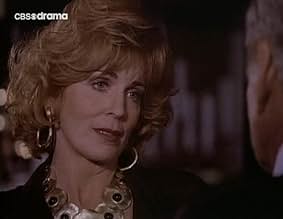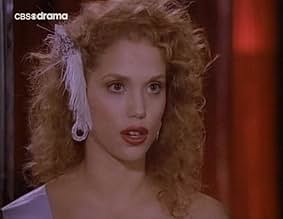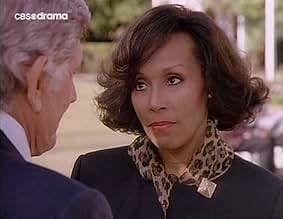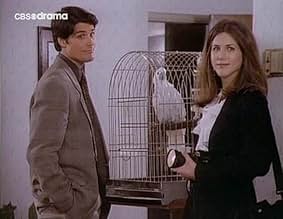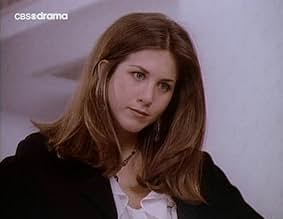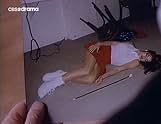Amos Burke, a senior Los Angeles police officer and millionaire. Burke is a widower with a son, Peter, who is a detective under his command: glamorous backgrounds, convoluted plots and big n... Read allAmos Burke, a senior Los Angeles police officer and millionaire. Burke is a widower with a son, Peter, who is a detective under his command: glamorous backgrounds, convoluted plots and big names.Amos Burke, a senior Los Angeles police officer and millionaire. Burke is a widower with a son, Peter, who is a detective under his command: glamorous backgrounds, convoluted plots and big names.
Browse episodes
Storyline
Did you know
- TriviaAll episode's title's names begin with who killed the.....
- ConnectionsFollows Burke's Law (1963)
Featured review
The original BURKE'S LAW from the 1960s was, in it's day, as much a popular detective series with "style" as THE AVENGERS were. That does not mean it was as well written as the best AVENGERS episodes were. The best BURKE'S LAW episodes concentrated on the mystery plotting rather than the social satire of Steed and Ms Peel. But the central idea, about a millionaire Police Chief in L.A. was picked up and reused within a decade in MACMILLAN AND WIFE with Rock Hudson and Susan Saint James. The use of dozens of Hollywood movie figures as suspects in the plots of the BURKE'S LAW episodes would become a model for such later shows as COLUMBO and MURDER SHE WROTE.
To keep up with changes in the audience (in the wake of the James Bond phenomenon), the network changed the original to a spy series starring Gene Barry again as Amos Burke, but that turned out to be a flop. So it left the screen. Barry would soon return to television with Robert Stack and Tony Franciosa in THE NAME OF THE GAME, so his career continued to flourish.
Than, in 1994, BURKE'S LAW returned for a new season. The only difference was that Amos was now a widower with a grown son named Peter, played by Peter Barton. The basic character of the Chief of Police was kept by Barry, who mingled brains, elegance, and a sly wit (culminating in his "interpretations" or "popularizations" of rules of law) when explaining some situation confronting his solving a case with his son's assistance.
Again there were many familiar faces, but now many were from the first two generations of television (understandably, as the old Hollywood faces who appeared in the 1960s were dead or dying our). In one episode, a Judge who realizes the short-comings of the criminal justice system (with a degree of humor) was played by Sherman Helmsley of THE JEFFERSONS. But what showed the limitations of the revival was only apparent to people who watched the original. They were reusing old screenplays and story lines.
For example: One episode dealt with a famous magician who was performing a Houdini like escape by being sealed in a coffin, and sunk into a pool for twenty four hours. The coffin is brought to the surface, but the hotel doctor notices something odd when the coffin is opened. He goes over to the magician and examines him - and announces the magician has died, but from being shot. As the pool had underwater cameras trained on it, nobody can figure out how the magician got murdered.
Now this happened to be a very fine episode on the original series. The hotel doctor in that episode was Paul Lynde, who naturally played the part for every drop of humor that could be squeezed (he keeps moping about the fact that he has just started working at this luxury hotel, and his bosses will not like that his first claim to public attention was this garish murder case). The actor playing the magician was not a well known one.
But when it was remade in 1994, the magician was played by John Astin, and instead of only appearing at the very start of the episode only, Astin made a surprise second appearance in the later part of the episode as a kind of visual trick. The hotel doctor was played by Tom Bosley, but with more seriousness than Lynde showed in the original. Other actors (including Roddy MacDowell) popped up in the episode as rival magicians who may have killed Astin. The solution, however, remained the same as in the original version.
Another episode was a repeat of the story that was in the original series where Anne Francis popped up as female detective Honey West. Francis's West would go on to have her own series on television for a year or two as a result of the appearance in the first series.
Of course the scripts had to be rewritten to give Peter Burke as much to do as his father Amos. But the fact that the episodes became retreads of originals showed that the series had not been well thought out after all. For old time fans it must have seemed a let-down to see the old tales repeated (especially as you could guess the solutions). For new audiences, there was the problem of attracting new fans with characters they could get involved in. Barry and Barton tried, but the father and son team did not work very well. It was entertaining enough, but not as memorable as the original had been.
To keep up with changes in the audience (in the wake of the James Bond phenomenon), the network changed the original to a spy series starring Gene Barry again as Amos Burke, but that turned out to be a flop. So it left the screen. Barry would soon return to television with Robert Stack and Tony Franciosa in THE NAME OF THE GAME, so his career continued to flourish.
Than, in 1994, BURKE'S LAW returned for a new season. The only difference was that Amos was now a widower with a grown son named Peter, played by Peter Barton. The basic character of the Chief of Police was kept by Barry, who mingled brains, elegance, and a sly wit (culminating in his "interpretations" or "popularizations" of rules of law) when explaining some situation confronting his solving a case with his son's assistance.
Again there were many familiar faces, but now many were from the first two generations of television (understandably, as the old Hollywood faces who appeared in the 1960s were dead or dying our). In one episode, a Judge who realizes the short-comings of the criminal justice system (with a degree of humor) was played by Sherman Helmsley of THE JEFFERSONS. But what showed the limitations of the revival was only apparent to people who watched the original. They were reusing old screenplays and story lines.
For example: One episode dealt with a famous magician who was performing a Houdini like escape by being sealed in a coffin, and sunk into a pool for twenty four hours. The coffin is brought to the surface, but the hotel doctor notices something odd when the coffin is opened. He goes over to the magician and examines him - and announces the magician has died, but from being shot. As the pool had underwater cameras trained on it, nobody can figure out how the magician got murdered.
Now this happened to be a very fine episode on the original series. The hotel doctor in that episode was Paul Lynde, who naturally played the part for every drop of humor that could be squeezed (he keeps moping about the fact that he has just started working at this luxury hotel, and his bosses will not like that his first claim to public attention was this garish murder case). The actor playing the magician was not a well known one.
But when it was remade in 1994, the magician was played by John Astin, and instead of only appearing at the very start of the episode only, Astin made a surprise second appearance in the later part of the episode as a kind of visual trick. The hotel doctor was played by Tom Bosley, but with more seriousness than Lynde showed in the original. Other actors (including Roddy MacDowell) popped up in the episode as rival magicians who may have killed Astin. The solution, however, remained the same as in the original version.
Another episode was a repeat of the story that was in the original series where Anne Francis popped up as female detective Honey West. Francis's West would go on to have her own series on television for a year or two as a result of the appearance in the first series.
Of course the scripts had to be rewritten to give Peter Burke as much to do as his father Amos. But the fact that the episodes became retreads of originals showed that the series had not been well thought out after all. For old time fans it must have seemed a let-down to see the old tales repeated (especially as you could guess the solutions). For new audiences, there was the problem of attracting new fans with characters they could get involved in. Barry and Barton tried, but the father and son team did not work very well. It was entertaining enough, but not as memorable as the original had been.
- theowinthrop
- Jun 15, 2006
- Permalink
- How many seasons does Burke's Law have?Powered by Alexa
Details
Contribute to this page
Suggest an edit or add missing content


